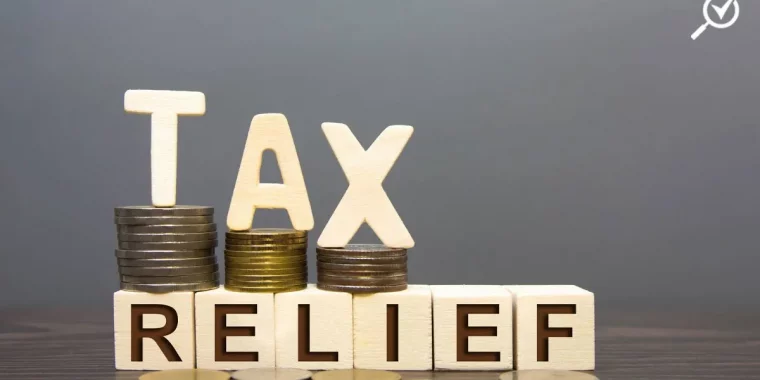A tax break, or tax relief, is a way for you to reduce your tax liability by considering things you spend money on or invest in for your business. It’s the Government’s way of helping to stimulate the economy by ensuring you have more money to spend on your business. It’s also a way to encourage positive behaviours, such as donating to charity and investing in innovation.
Types of Tax breaks initiated by HMRC:
1. Employment Allowance (National Insurance relief)
Claiming Employment Allowance lets you pay fewer employers’ Class 1 National Insurance every time you run your payroll until you reach the £4,000 threshold or the end of the tax year, whichever is sooner.
2. Annual Investment Allowance (AIA)
The AIA is a type of capital allowance that lets you deduct the costs of plant and machinery from your profit when paying tax. This relief was introduced by HMRC in 2008 to stimulate business growth by encouraging the purchase of business equipment.
3. Business Rates Relief and Council Exemptions
Business premises can get business rate discounts from local councils. There are different schemes available depending on your business. The relief rate varies depending on the necessity of your business in the area you are applying for.
4. Research and Development Tax Relief (R&D Tax Relief)
Claiming research and development (R&D) tax relief could be an option if you’re a limited company and work on innovative science and technology projects.
The project doesn’t need to be successful to qualify you for the relief – it just needs to aim to research or develop and advance in your field.
5. Creative Industry’s Tax Relief
If your company passes the British Film Institute cultural test, you may qualify for this relief. His relief is used by the government to enhance the arts and theatrical culture. If your production qualifies, you may have a portion of your core production cost relieved.
6. Seed Enterprise Investment Scheme (SEIS)
The Seed Enterprise Investment Scheme is a venture capital scheme that helps new companies raise money, as long as you use it for a ‘qualifying trade’. SEIS is designed to help your company raise money when it’s starting to trade. It does this by offering tax reliefs to individual investors who buy new shares in your company. You can receive a maximum of £150,000 through SEIS investments.
7. Enterprise Investment Schemes (EIS)
The Enterprise Investment Scheme is one of four government venture capital schemes. EIS encourages investors to buy new shares in your business by offering tax relief to individual investors. Under EIS, you can raise £5 million each year and a maximum of £12 million in your company’s lifetime. This also includes amounts received from other venture capital schemes. Your company must receive investment under a venture capital scheme within 7 years of its first commercial sale.
8. Marginal Relief
Marginal Relief to reduce your corporation tax bill. It gives you a gradual increase in your tax rate between the small profits rate and the main rate.
9. Business Asset Disposal Relief (BADR) or Entrepreneurs’ Relief
You may be able to reduce your capital gains tax bill when you sell your business by claiming Business Asset Disposal Relief (BADR).
10. The Patent Box Tax Relief
If you run your own company, the Patent Box may mean you can apply a lower rate of corporation tax to your profits on any patented inventions you have. By keeping your Intellectual property patented in the UK, you may receive 10% of your corporation tax. Many who develop new products through the research and development scheme, conjunctly apply for this tax relief also.
11. Social Investment Tax Relief (SITR)
SITR allows individuals to help social enterprises such as charities grow by offering tax relief on investments. Under SITR an induvial can purchases shares in a social enterprise and claim 30% income tax relief. It enables the investor to receive discounted shares whilst providing the company with much-needed funds.
Tax Reliefs are essential for the economy as they provide an opportunity for business owners with low capital to invest in essential areas whilst retaining capital, such as much-needed investment in machinery required for a company to function. According to HMRC, a large quantity of SMEs do not utilise all the reliefs available to them, causing them to lose a large amount of capital they could have saved.
If you have further queries on any of the tax reliefs and if they can be applicable to you or your business, please contact Wim Accountants at 0208 227 1700 or info@wimaccountants.com. We will ensure you and your business can claim the maximum amount of relief available.
Originally posted 2022-07-13 12:48:54.

